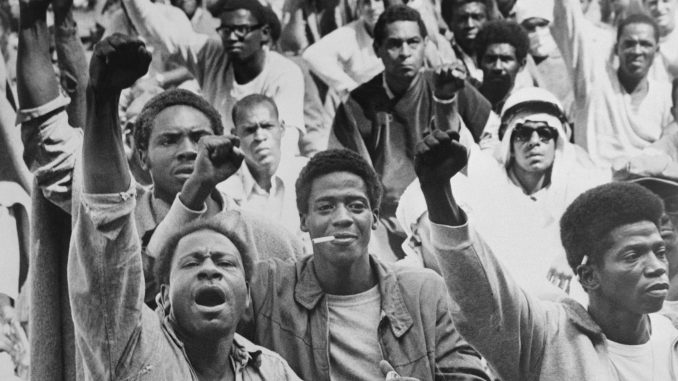
On August 21, prisoners in 17 different states launched a prison strike against the brutal conditions and state violence directed primarily against the poor and minorities. Prisoners are refusing to work or eat for the 19 days of the strike. The strike, coordinated and spread by the prisoners themselves, reached into prisons across the U.S. In addition, hundreds of immigrant prisoners of the Immigration and Customs Enforcement agency joined in the strike. This prison strike is truly a revolt of the oppressed against an institution that oppresses them.
Prisoners began to get organized after seven inmates were killed by guards during a riot in a South Carolina prison last April. The violence, on top of all of the other indignities of prison life, was one step too far. Death is an all too common occurrence in prison. For example in the last three weeks, ten prisoners have died in their cells with prison authorities offering no concrete cause of their death. Organizers of the strike, calling themselves “Jailhouse Lawyers Speak,” have said that they hope to bring public attention to the number of deaths of prisoners and to the horrific treatment they are forced to endure. According to the statement released by the organizers, “Fundamentally, it’s a human rights issue…prisoners understand they are being treated as animals. Prisons in America are a warzone. Every day prisoners are harmed due to conditions of confinement. For some of us it’s as if we are already dead, so what do we have to lose?”
The prisoners on strike are demanding an immediate end to the inhuman violence perpetrated against them and improvements in basic necessities. They also demand minimum wage laws apply to prisons, ending the common practice of paying prisoners pathetic sums of money for forced labor – in Louisiana it is as low as four cents per hour. The prisoners are demanding that racist over-sentencing and parole denials for minorities be stopped, and that all prisoners have a right to eventual parole, not having to die in prison. Finally prisoners are demanding rehabilitation and education programs that have been cut.
The prison strike began on August 21 to commemorate the day, 47 years ago, that Black Panther George Jackson was killed in San Quentin Prison. George Jackson had joined the Black Panthers while he was in prison, developing a political consciousness of the society that had incarcerated him. Jackson was killed in an alleged escape in 1971. Jackson’s writings became well known among prisoners. Following Jackson’s death, an uprising in New York’s Attica prison was organized by the inmates there, demanding improvements in their conditions. The uprising was suppressed by state police who stormed the jail, killing 33 prisoners and ten prison guards.
The current strike is set to end on September 9th to mark the 47th anniversary of the Attica prison uprising in which prisoners rose up and seized control of their prison. The choice of these symbolic dates links this prisoners’ strike to the history of resistance by prisoners in the U.S.
In capitalist society, prisons function to absorb the thousands upon thousands of people who have been marginalized, abused, and deprived of a place in so-called normal society. There are 2.2 million people in prisons and jails in the U.S. The racism of this society guarantees that the weight of the prison system falls most heavily on minorities, especially Black people who make up 40% of the prison population. The prisoners are absolutely right to stand up against the prison system and demand these basic reforms at the very least.

